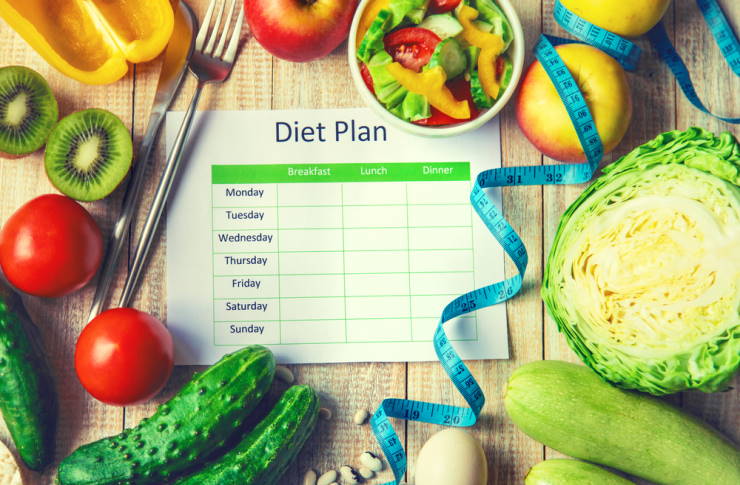Effective weight loss programs for sustainable results
Achieving and maintaining a healthy weight is a journey that requires commitment, patience, and the right approach. The landscape of weight loss programs is vast and varied, with countless options promising quick results. However, sustainable weight loss is not about rapid changes but rather adopting lifestyle modifications that can be maintained long-term. Effective weight loss programs focus on balanced nutrition, regular physical activity, behavioral changes, and personalized approaches that address individual needs and preferences. This article explores evidence-based weight loss strategies that promote lasting results rather than temporary fixes.

Personalized Diet Plans for Healthy Weight Management
Weight loss is not a one-size-fits-all endeavor. Personalized diet plans consider individual factors such as age, gender, current weight, activity level, medical history, and personal preferences. These customized approaches typically begin with an assessment of your basal metabolic rate (BMR) and daily caloric needs. From there, a sustainable caloric deficit can be established—typically 500-1000 calories less than your maintenance level to achieve a healthy weight loss rate of 1-2 pounds per week.
Effective personalized plans don’t just focus on calorie counting but also on nutrient density. They emphasize whole foods like vegetables, fruits, lean proteins, whole grains, and healthy fats while limiting processed foods, added sugars, and refined carbohydrates. Many successful personalized approaches incorporate regular check-ins and adjustments as your body composition changes and your nutritional needs evolve throughout your weight loss journey.
Comparing Popular Weight Loss Programs and Their Benefits
The market is saturated with weight loss programs, each with different philosophies and approaches. Understanding the differences can help you select one that aligns with your lifestyle and preferences.
Mediterranean Diet: This eating pattern emphasizes fruits, vegetables, whole grains, olive oil, and lean proteins, particularly fish. Research consistently shows its benefits for heart health and sustainable weight management. The Mediterranean approach is less about restriction and more about embracing nutritious whole foods in a balanced way.
Weight Watchers (WW): This program assigns point values to foods based on their nutritional content, allowing participants flexibility in food choices while staying within their daily point allocation. WW combines dietary guidance with behavioral support through group meetings or digital communities. Studies show WW participants typically achieve greater weight loss compared to self-directed programs.
Intermittent Fasting: Rather than dictating what to eat, intermittent fasting focuses on when to eat. Common approaches include the 16:8 method (16 hours fasting, 8 hours eating) or the 5:2 method (restricted calories two days per week). Research suggests this approach can be effective for some individuals by naturally reducing caloric intake and potentially improving metabolic health.
Low-Carbohydrate Diets: Programs like Atkins or ketogenic diets drastically reduce carbohydrate intake while increasing protein and fat consumption. These approaches can produce rapid initial weight loss, primarily due to water loss, and may be effective for some individuals, particularly those with insulin resistance.
Nutrition-Based Approaches to Long-Term Weight Loss
Sustainable weight management ultimately depends on developing a healthy relationship with food rather than viewing eating as a series of restrictions. Nutrition-based approaches focus on dietary quality, portion awareness, and mindful eating practices that can be maintained indefinitely.
The most successful nutrition strategies emphasize whole, minimally processed foods that provide satiety while delivering essential nutrients. High-volume, low-calorie foods like vegetables and fruits allow for larger portions that satisfy hunger without excessive calories. Adequate protein intake (typically 0.7-1 gram per pound of body weight) supports muscle preservation during weight loss and increases the thermic effect of food, meaning your body burns more calories during digestion.
Sustainable approaches also recognize the importance of food enjoyment and flexibility. Rather than eliminating entire food groups or favorite treats, effective programs teach moderation and conscious indulgence. Learning to enjoy smaller portions of higher-calorie foods can prevent feelings of deprivation that often lead to rebound overeating and weight regain.
The Role of Physical Activity in Effective Weight Loss Programs
While diet typically drives initial weight loss, physical activity plays a crucial role in maintaining results and improving overall health. Effective weight loss programs incorporate both cardiovascular exercise and strength training for optimal outcomes.
Cardiovascular activities like walking, swimming, or cycling burn calories directly and improve heart health. Strength training preserves and builds muscle mass, which is metabolically active tissue that increases your resting metabolic rate—essentially allowing you to burn more calories even at rest. Additionally, regular exercise improves insulin sensitivity, reduces stress, enhances mood, and promotes better sleep quality—all factors that support weight management.
The most successful physical activity programs start gradually and build intensity over time, making exercise a sustainable habit rather than an overwhelming obligation. Research shows that finding activities you enjoy increases adherence, making pleasurable movement a cornerstone of lasting weight management.
Behavioral Support and Accountability in Weight Loss Programs
The psychological aspects of weight management are often underestimated but crucial for long-term success. Effective weight loss programs incorporate behavioral support through coaching, counseling, or group dynamics. These elements address emotional eating, develop coping strategies for challenging situations, and help participants recognize and modify unhelpful thought patterns around food and body image.
Accountability structures—whether through regular weigh-ins, food tracking, or check-ins with professionals or peers—consistently improve outcomes. Digital tools like smartphone apps can facilitate this process by making food logging more convenient and providing immediate feedback. However, the human connection found in in-person or virtual group settings offers unique benefits through shared experiences and collective problem-solving.
This article is for informational purposes only and should not be considered medical advice. Please consult a qualified healthcare professional for personalized guidance and treatment.




